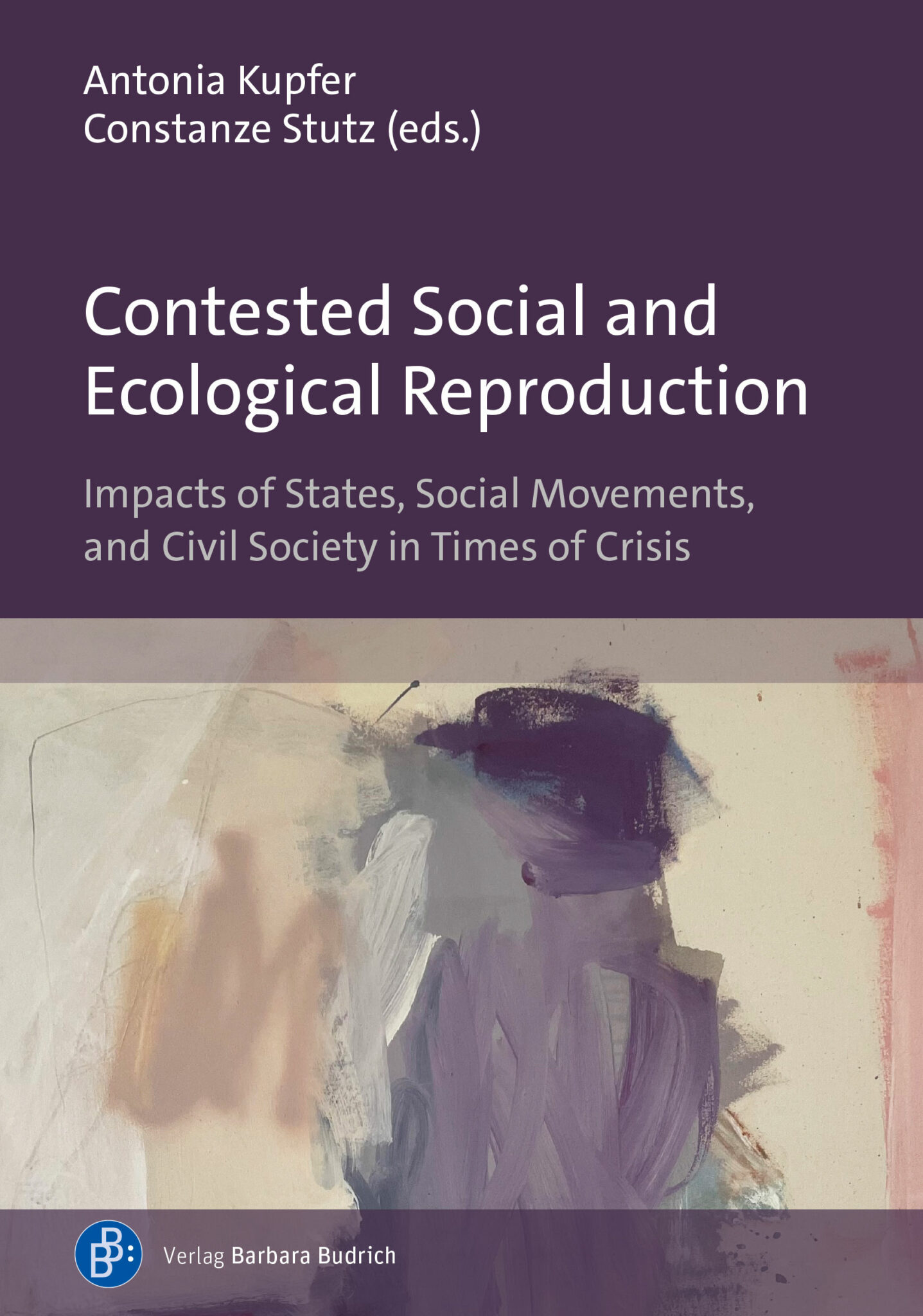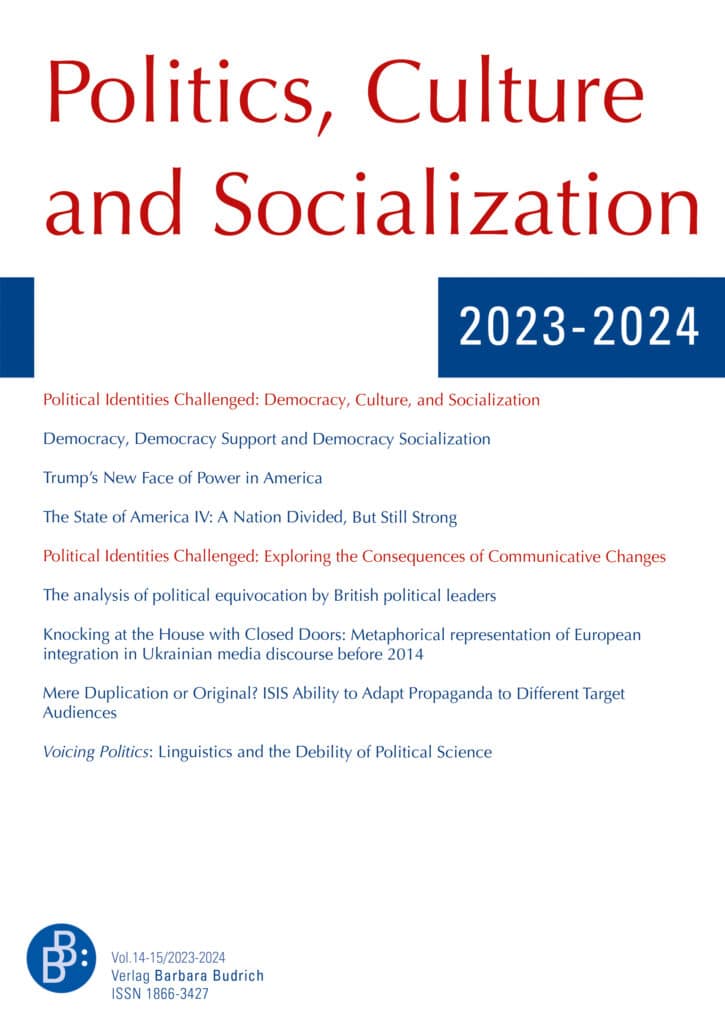Informationen zum Buch
Home » Publications » Contested Social and Ecological Reproduction
Contested Social and Ecological Reproduction
Impacts of States, Social Movements, and Civil Society in Times of Crisis
Erscheinungsdatum : 17.06.2024
0,00 € - 43,00 € incl. VAT
- Beschreibung
- Bibliography
- Produktsicherheit
- Additional Content
- Bewertungen (0)
- Authors
- Tags
- Pressestimmen
Beschreibung
Humanity has not succeeded in securing the basis of life for all people. A major reason is the dominant global capitalist economy, which is based on the exploitation and use of nature—but this state of affairs is not accepted by everyone. This book provides a close socio-analytical look at how states, social movements, and civil society actors deal with this polycrisis.
Ever since the economic crisis of 2008/09 the growth and expansion potentials of the post-Fordist production phase have come to their end. Thus, the economic-ecological pincer crisis with rampant social inequality is becoming increasingly apparent, exacerbating the widely diagnosed crisis of social reproduction. It is precisely the prevailing conditions and possibilities of social reproduction that are more and more challenged globally by social movements. These struggles are about securing livelihoods and better foundations for social and ecological reproduction. The authors ultimately draw attention to the ways in which social and state structures are adapted to crises and social struggles. They also highlight how social movements find altered forms of protest that are increasingly at the centre of social science debates.
The editors:
Prof. Dr. Antonia Kupfer is professor of Macrosociology at the Institute of Sociology at Technical University of Dresden in Germany.
Constanze Stutz, M.A. is working on her doctorate in sociology at the Institute for Social Research Frankfurt a. M. in Germany.
The subject:
Sociology, Gender Studies
Zusätzliche Informationen
| Publisher | |
|---|---|
| ISBN | 978-3-8474-2721-6 |
| eISBN | 978-3-8474-1892-4 |
| Open Access-Lizenz | |
| Format | 14,8 x 21,0 cm |
| Scope | 148 |
| Year of publication | 2024 |
| Date of publication | 17.06.2024 |
| Edition | 1. |
| Language | Englisch |
Additional Content
Autor*innen
KeywordsCapitalism, care, ecological reproduction, feminist strike, feminist theory, Juni 2024, livelihoods, Social movements, social reproduction, social theory, struggle against commodification
Pressestimmen
Ausgehend von dem Standpunkt der Kapitalismuskritik – Kapitalismus wird hier sowohl als ökonomisches System, als auch als Lebensweise betrachtet – zeigt der Band unter sozio-analytischer Perspektive soziale Krisen auf, die durch kapitalistische, strukturelle Gleichgültigkeit entstanden sind. Wie mit jenen Krisentendenzen in verschiedenen gesellschaftlichen Sektoren umgegangen wird, wird mit Blick auf Makrodynamiken aber auch subjektive Interpretation erforscht.
Beschreibung
Beschreibung
Humanity has not succeeded in securing the basis of life for all people. A major reason is the dominant global capitalist economy, which is based on the exploitation and use of nature—but this state of affairs is not accepted by everyone. This book provides a close socio-analytical look at how states, social movements, and civil society actors deal with this polycrisis.
Ever since the economic crisis of 2008/09 the growth and expansion potentials of the post-Fordist production phase have come to their end. Thus, the economic-ecological pincer crisis with rampant social inequality is becoming increasingly apparent, exacerbating the widely diagnosed crisis of social reproduction. It is precisely the prevailing conditions and possibilities of social reproduction that are more and more challenged globally by social movements. These struggles are about securing livelihoods and better foundations for social and ecological reproduction. The authors ultimately draw attention to the ways in which social and state structures are adapted to crises and social struggles. They also highlight how social movements find altered forms of protest that are increasingly at the centre of social science debates.
The editors:
Prof. Dr. Antonia Kupfer is professor of Macrosociology at the Institute of Sociology at Technical University of Dresden in Germany.
Constanze Stutz, M.A. is working on her doctorate in sociology at the Institute for Social Research Frankfurt a. M. in Germany.
The subject:
Sociology, Gender Studies
Bibliography
Zusätzliche Informationen
| Publisher | |
|---|---|
| ISBN | 978-3-8474-2721-6 |
| eISBN | 978-3-8474-1892-4 |
| Open Access-Lizenz | |
| Format | 14,8 x 21,0 cm |
| Scope | 148 |
| Year of publication | 2024 |
| Date of publication | 17.06.2024 |
| Edition | 1. |
| Language | Englisch |
Produktsicherheit
Additional Content
Additional Content
Bewertungen (0)
Bewertungen
Es gibt noch keine Bewertungen.
Authors
Autor*innen
Tags
KeywordsCapitalism, care, ecological reproduction, feminist strike, feminist theory, Juni 2024, livelihoods, Social movements, social reproduction, social theory, struggle against commodification
Pressestimmen
Pressestimmen
Ausgehend von dem Standpunkt der Kapitalismuskritik – Kapitalismus wird hier sowohl als ökonomisches System, als auch als Lebensweise betrachtet – zeigt der Band unter sozio-analytischer Perspektive soziale Krisen auf, die durch kapitalistische, strukturelle Gleichgültigkeit entstanden sind. Wie mit jenen Krisentendenzen in verschiedenen gesellschaftlichen Sektoren umgegangen wird, wird mit Blick auf Makrodynamiken aber auch subjektive Interpretation erforscht.
Verlag Barbara Budrich
- +49 (0)2171.79491-50
- info@budrich.de
-
Stauffenbergstr. 7
51379 Leverkusen
Germany











Bewertungen
Es gibt noch keine Bewertungen.